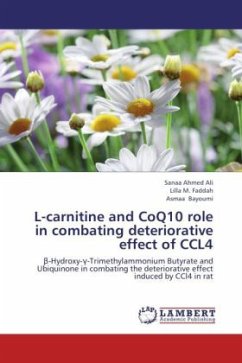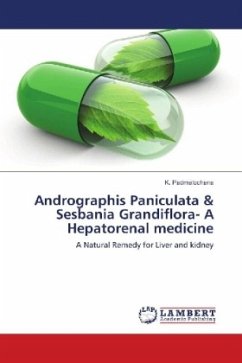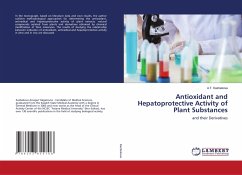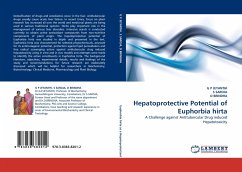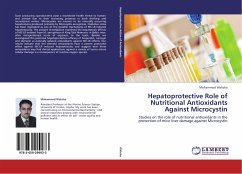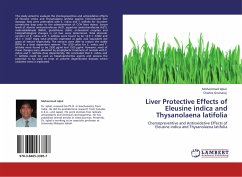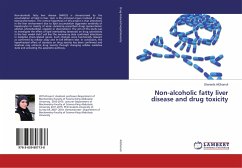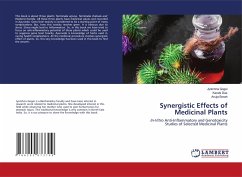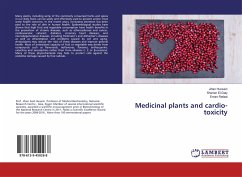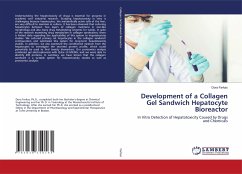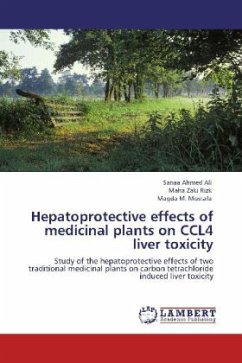
Hepatoprotective effects of medicinal plants on CCL4 liver toxicity
Study of the hepatoprotective effects of two traditional medicinal plants on carbon tetrachloride induced liver toxicity
Versandkostenfrei!
Versandfertig in 6-10 Tagen
52,99 €
inkl. MwSt.

PAYBACK Punkte
26 °P sammeln!
CCl4 is a halogen aliphatic hydrocarbon derived from methane with an aromatic sweet odor, and heavier than water in which it is sparingly soluble. Its use is very much restricted on account of the fact that its toxicity can manifest itself after simple inhaling. CCl4 has been widely used as a dry-cleaning solvent and in-fire-extinguishers because it is a non-flammable liquid. The experimental model of CCl4 treatment in rats has been extensively used to study liver fibrogensis. The bio-activation of CCl4 is complex and implicated both reductive and oxidative pathways. CCl4 is widely used to tre...
CCl4 is a halogen aliphatic hydrocarbon derived from methane with an aromatic sweet odor, and heavier than water in which it is sparingly soluble. Its use is very much restricted on account of the fact that its toxicity can manifest itself after simple inhaling. CCl4 has been widely used as a dry-cleaning solvent and in-fire-extinguishers because it is a non-flammable liquid. The experimental model of CCl4 treatment in rats has been extensively used to study liver fibrogensis. The bio-activation of CCl4 is complex and implicated both reductive and oxidative pathways. CCl4 is widely used to treat animals as a liver injury model because damage by CCl4 is regarded as the analogue of liver damage caused by a variety of hepatotoxins in humans. Liver disease is a worldwide problem; conventional drugs used in the treatment of liver disease are sometimes inadequate and can have serious adverse effects. It is; therefore, necessary to search for alternative drugs for treatment of liver disease to replace currently used drugs of doubtful efficacy and safety, so there is a worldwide trend to go back to traditional medicinal plants in use for treatment of liver ailments.



